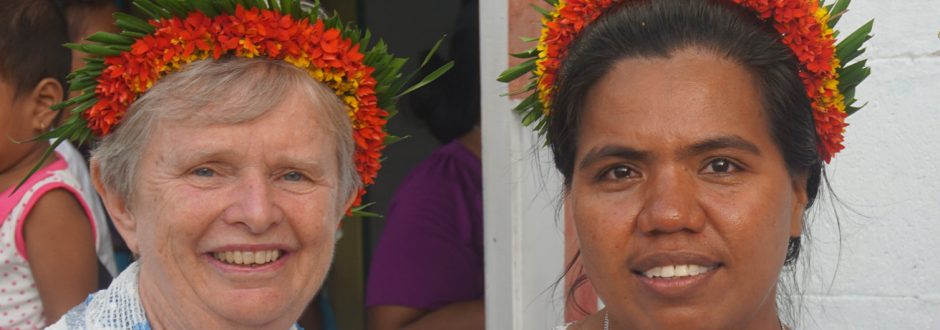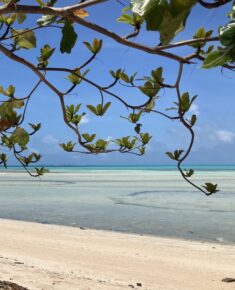Sister Joyce Meyer, a member of the Sisters of the Presentation of the Blessed Virgin Mary and writer for the US-based Global Sisters Report, recently visited Fiji where she met sisters, priests, brothers and lay ministers (including Good Samaritan Sisters) who live and work with small communities on tiny islands and atolls in the middle of the Pacific Ocean.
“They frequently work without electricity or technology and many other advantages most of us take for granted. They are definitely on the margins, and their stories dramatically shifted my consciousness about how I perceive the world,” Joyce wrote in a recent GSR blog post.
“I usually think of countries being masses of land that have bodies of water scattered here and there, with some, of course, surrounded by water. Fortunately, I was quickly educated as the sisters described their countries very differently. Their countries are huge bodies of water with small masses of land scattered here and there.
“My ignorance was even more apparent when I saw maps outlining the borders of these sea countries, far beyond the small images of land that usually identify them. The combined countries of Oceania is a region of 3.3 million square miles, just a little smaller than the 3.8 square miles of the United States (includes Alaska). What is it like to live and work in a country of water?
“Vulnerability is a constant. Travel from one village or town can require only a very short walk on land since some of the islands or atolls are only a couple of miles wide or, in some places, the width of a room in a house. Alternatively, it could entail getting into a motorboat to fly and bounce across the waves to villages on other islands. Although getting into a motorboat is something most of us land-dwellers would do for recreation, islanders take this method of transportation for granted as ordinary travel.
“Even though ordinary, travelling by motorboat can be precarious, as I learned from a priest from the country of Kiribati.”
Posted with permission from Global Sisters Report, an independent, non-profit source of news and information about Catholic sisters and the critical issues facing the people they serve.


